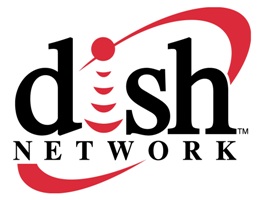Dish Emerges As LightSquared “Stalking Horse” Bidder
The smarter way to stay on top of the multichannel video marketplace. Sign up below.
You are now subscribed
Your newsletter sign-up was successful

Charlie Ergen’s pursuit of wireless broadband spectrum just kicked up a notch Tuesday, after his Dish Network emerged as a “stalking horse” bidder for LightSquared LP, a bankrupt broadband service provider headed by hedge fund guru Philip Falcone.
Ergen bid – through a Dish wholly-owned subsidiary called L-Band Acquisition LLC -- $2.22 billion for LightSquared’s assets, mainly a swath of 46 Megahertz L-Band MSS wireless spectrum.
According to documents filed with the U.S. Bankruptcy Court zfor the Southern District of New York, a group of LightSquared’s lenders have called for an immediate auction of the company, naming Dish as the “stalking horse” bidder for the spectrum.
As a stalking horse bidder, Dish’s offer would serve as the base price in a future official auction of the assets. That would force Falcone to come up with an equal or better bid to retain the company.
The deal comes on the heels of Dish’s abandoned attempts to acquire wireless giants Sprint and Clearwire in separate deals. The LightSquared reorganization plan still has to be approved by the U.S. Bankruptcy Court.
Dish chairman Charlie Ergen made a $2 billion offer for LightSquared’s assets in May. The latest offer is only for LightSquared LP, which holds the wireless assets. LightSquared Inc., headed by Falcone, owns about 96% of LightSquared LP’s equity.
LightSquared filed for bankruptcy protection last year after it hit a snag in its plans for a nationwide ultra-high-speed data network. The company’s wireless frequencies were tentatively approved by the Federal Communications Commission in 2011, but that was pulled in 2012 after the agency determined in tests that the service would interfere with Global Positioning Satellite frequencies. The FCC has given LightSquared permission to experiment with sharing frequencies currently used by government weather satellites and weather balloons. In addition, the company has agreed to give up about 10 MHz of spectrum that was adjacent to GPS frequencies.
The smarter way to stay on top of the multichannel video marketplace. Sign up below.
Falcone had lost control of the bankruptcy process when he allowed a July 15 deadline to pass that gave him the exclusive right to cut a deal. As a result, the company had expected several parties to submit proposals.
The L-Band deal has the backing of LightSquared’s major lenders, including Capital Research & Management, Cyrus Capital Partners, Intermarket Corp., UBS AG, SP Special Opportunities, a fund owned by Ergen. Falcone has tried to block Ergen’s overturues – and according to reports, lawyers for the lenders complained that LightSquared has refused to negotiate with them, despite having “a bag of $2 billion in cash” before them for more than a month.
Analysts seemed pleased with the deal, mainly because it would give Dish more wireless spectrum at a cheap price. The satellite giant spent about $3 billion acquiring wireless spectrum from two bankrupt entities – DBSD North America and TerreStar – last year.
Pivotal Research Group principal and senior media & communications analyst Jeff Wlodarczak said the acquisition represents another swath of “pristine spectrum bought on the cheap,” for Dish.
“In a wireless spectrum constrained world pristine is only getting more valuable,” he added.
But still unclear is how Ergen and Dish will build out the spectrum. In the past Dish had hoped it would partner with a larger telecom provider to construct a wireless broadband network – also part of the motivation behind its Sprint and Clearwire plays.
Some analysts have speculated that Dish could make a run at wireless giant T-Mobile, but chances are it would not be alone in its pursuit. Other alternatives include selling the spectrum or the entire company.
